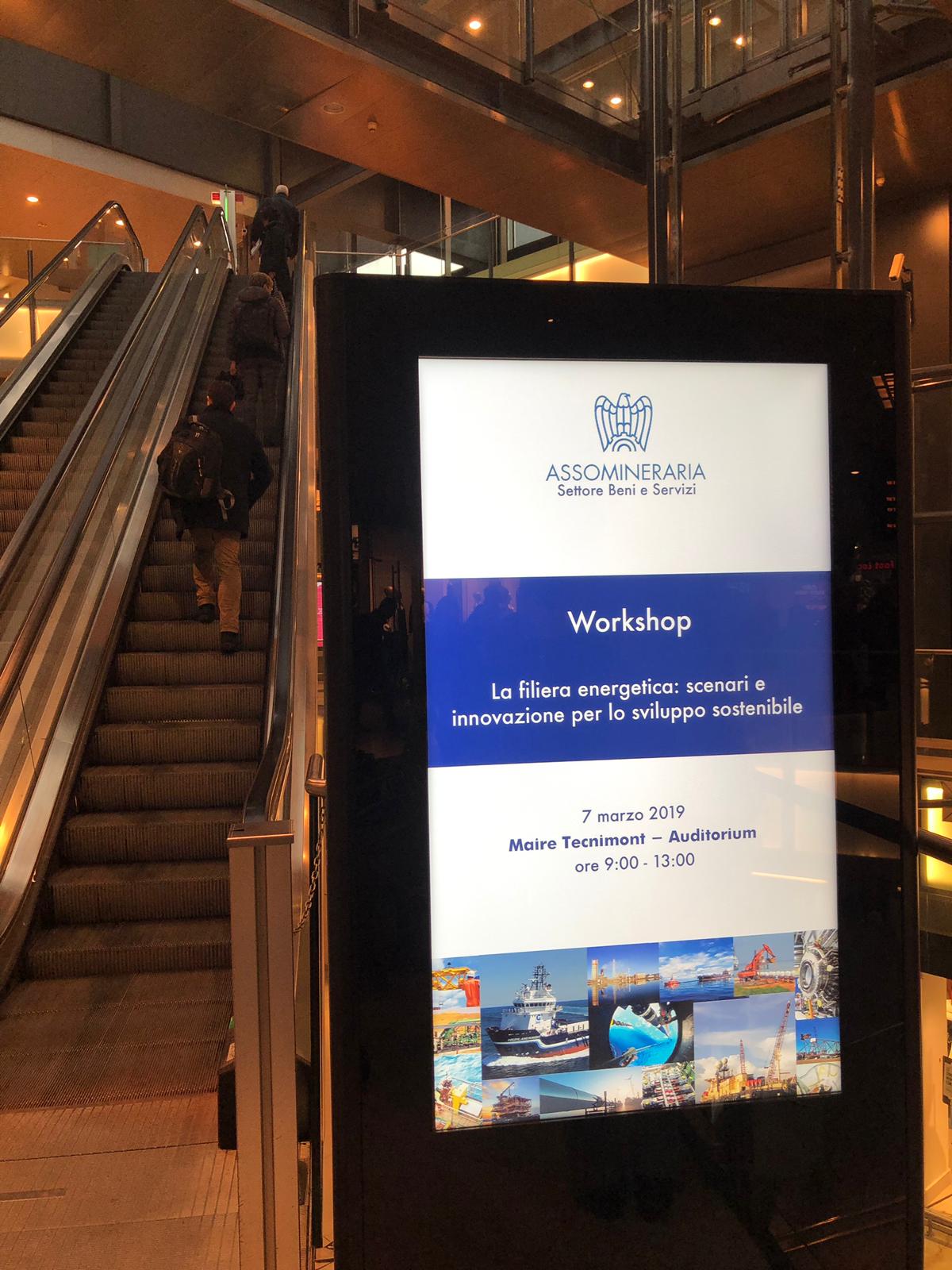
March 7, 2019 – The annual Assomineraria Workshop entitled “The Energy Industry: Scenarios and Innovation for Sustainable Development” was hosted again this year at the auditorium of the Maire Tecnimont headquarters in Milan. The main topics covered during the workshop included synergies, technology and those issues which must be addressed to successfully navigate the energy transition and ensure continued growth.
Fabrizio Di Amato, Maire Tecnimont Chairman and Majority Shareholder, opened the day’s work with the words: “The annual Assomineraria workshop is an important opportunity for analysis and debate of the future scenarios of the energy market, which is currently undergoing a deep-rooted change driven by the energy transition under way. This evolution towards more sustainable and unconventional energy sources will take place gradually, but it must be effectively guided already from today, through decisive national policy. Only by changing our approach and identifying possible synergies and areas of collaboration with all stakeholders in the energy sector, will we be able to work in a concrete way to guarantee the growth of the Italian industrial system in line with the long-term goals set by Paris COP21.”
Pierroberto Folgiero, Maire Tecnimont Group CEO, presented the Group’s “Green Acceleration” Project launched last November through NextChem, a new subsidiary, which operates in the fields of green chemistry and technology for the energy transition and uses a new three-pillar strategy: reducing the carbon footprint, promoting a circular economy and developing petroleum additives or substitutes made from renewable sources to be used for fuels and plastics.
The goal pursued by Assomineraria companies in the energy industry is to be ever more on the cutting-edge of technology and to operate in accordance with the highest international standards, in a sector characterized by innovation and posed to address the energy transition. And to do so, it is essential to optimize the range of sources, maximizing energy efficiency and reducing emissions from one end of the entire industrial chain to the other: from the production of primary sources to their conversion, transformation and distribution, up until their final use.